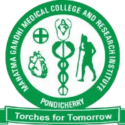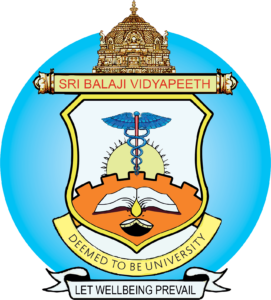community medicine





Overview
Key Features
We serve as a unique platform for those interested in any of the above-said three spheres teaching and training of health sciences personnel, socially relevant research and patient-care services at primary care level. We impart a wide variety of training from social work trainees of nearby towns to externship programs for medical graduates worldwide. The key underlying weave of most of our academic initiatives is to develop scientific temperament among medical graduates.
Mission
- To establish a unified platform for the Community Health departments of the Medical, Dental & Nursing colleges of our University, for interdisciplinary training and research.
- To educate medical graduates to be community-responsive healthcare providers.
- To promote health and cater to the primary health care needs of the community.
- To promote high-quality research on socially relevant issues.
Goals
- To provide community-based experiential learning to students.
- To train medical students to offer preventive, promotive, curative and palliative health care services.
- To actively promote e-learning tools in medical education.
- To provide primary health care services to the community through peripheral health centres and other extension activities.
- To propagate all national health policies and disseminate relevant health-related knowledge to the local community.
- To develop linkages with Governmental and Non-Governmental Organizations to implement various measures for promoting the health status of the community.
- To offer training programmes on Health Research Methodology for students and faculty.
- To collaborate with research agencies in developing and implementing programs for capacity building of health professionals in the field of research.
Best Practices
1.Early Community and Clinical Exposure to Undergraduate Students
- Health Appraisal by Rapid Techniques (HeART)
- Community Diagnosis & Feasible Intervention Training (CD- FIT)
- Clinical Research and Audit for the Medical StudentS (CReAMS)
designed as an innovative Learning Opportunity designed for the undergraduate medical students of MGMC&RI in order to provide them with early clinical and community exposure. These three programmes together provide a continuum of learning experiences for the UG students, fulfilling the objectives of giving them early community and clinical exposure as undergraduates as per the MCI guidelines.
HeART- Health Appraisal by Rapid Techniques
The specific objectives of this programme are:
- To provide early exposure to the students on research methodology
- To enable them students to explore the social, cultural and environmental links of health and disease.
CD-FIT – Community Diagnosis & Feasible Intervention Training
The specific objectives include:
- Describe the concepts, principles and methods of a Community Diagnosis in a field setting.
- Develop and use data collection tools like questionnaires and other forms of field observation tools in community settings.
- Plan and implement appropriate community intervention strategies for community education, health promotion and health screening
- Analyze social, cultural, economic and political factors that influence health
- Communicate health and health education needs, concerns and resources
CReAMS -Clinical Research and Audit for the Medical Students–for second MBBS students
The intended learning outcomes are:
- Understand and participate in multidisciplinary healthcare teams for clinical services and patient care.
- Elicit feedback from patients and understand the context of patient feedback for continuous quality improvement in healthcare
- Observe and evaluate systems-based practice in a hospital setting.
Understand the areas and parts of a modern hospital including CSSD, etc.
2. Unnat Bharat Abhiyan- Flagship Program Ministry of Human Resource Development
Objectives of the Practice
- To help identify the basic developmental and employment needs of villages and to find ways and means to meet these needs through the existing mechanism of Panchayti Raj Institutions.
- Involve the Professional institutes in the process of making developmental plans at various levels, viz. the Gram Sabha, the Panchāyat Samiti and the Zila Parishad by incorporating the cutting edge, proven, sustainable technologies in the plans.
- Facilitate convergence of development schemes of different ministries and their resources in holistic development of rural areas.
- To provide periodic feedback to the Zila Parishads, the state governments, and the Central government on the progress of implementation of the development plans, and to help remove the bottlenecks. Also, to indicate the need for innovative policy measures to facilitate the process of development.
- Identify the technology needs of the rural areas for which no satisfactory solution exists and develop a bank of such problems which could be a dynamic source of live projects for the students, research scholars and faculty in the professional institutes
- Help grassroots organizations in the crucial task of skill development so that the maintenance and repair of various products and services could be done locally.
- Empower communities to dialogue with knowledge institutions in order to evolve technically sound and locally feasible development plans using technologies that promote self-reliance.
- To develop a portal for Unnat Bharat Abhiyan for knowledge sharing and communication between all the stake holders.
- Collaborate with authentic voluntary organizations in carrying out various field projects for making innovative interventions of sustainable technologies and rural entrepreneurial models


